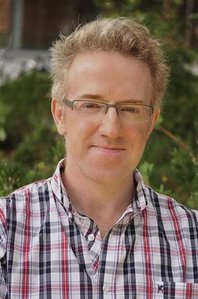Why We Need Open Source Pharma
BY MATTHEW TODD

The Open Source Pharma Conference in July was fascinating, because we were talking about a basic shift in the way we discover and develop medicines that is, essentially, possible. So many of the constituent pieces are in place. They just need to be drawn together, performed on an industrial scale, and funded. Importantly, the will of the participants was there. Each of us, from widely different backgrounds, convinced something needed to be done, and that that something could be found in radical openness. To capture the diversity of opinion, a core set of principles was drafted. Many of us were interested in plotting carefully what an open source "chevron" diagram would look like (blown up, reconstructed) and others in the room were more interested in the financial models or access for patients. So to group everyone into a whole, the principles of a "movement" were laid out, with the current version here. A contentious one there relates to IP. In the Open Source Malaria project, rule #3 is "There will be no patents." We use this for clarity and to distinguish the project from other efforts. There is a simplicity to this patent rule that is made possible by the project being centered in pre-clinical discovery and development. And the relevant disease is malaria. What if we were continuing the project through clinical? What if we were interested in the full chevron diagram of drug discovery, development and trials that lasts 10 years, and we were interested in cancer, or Alzheimer’s. There, the wisdom of "patent-free" is less clear. Who would invest? How would the work be funded? I think there are answers and good ones, too. We talked about this a lot at the meeting, and the outputs will start to emerge soon. There was a range of opinions about IP at the meeting—all of them interesting, so we captured that diversity with our third operating principle, "Adopt open and innovative approaches to the management of intellectual property and financing." But I sit somewhere on the "no patents" end of that range. I believe in open source pharma because I find it ugly when traditional secrecy throws sand into the well-oiled machinery of day-to-day scientific research. I start from that point and work towards new funding and investment solutions at the other end. I find that more interesting than saying, "Well, we must be secretive," and then bending our natural, human research instincts to fit that. We joked about the idea of including "*conditions apply" to the statement about IP, but decided against it. It’s complex and will be debated, quite rightly. The Bellagio conference was three days of fascinating debate. While we were in Bellagio, the UK Medical Research Council and several companies announced that they were collaborating on a new venture, which will allow UK researchers to access data on promising compounds that could be re-purposed. Any such venture is good, especially here because the compounds are likely to be promising starting points. I would have liked to have seen the compounds made available to anyone (not just UK scientists) and for the resulting projects to be open (since that will produce superior research outputs and better value for money). Better: Maybe we can persuade the players to move half the projects into the open domain, and then let’s see which projects perform better. It would be a true competition of closed and open. Matthew Todd teaches chemistry at The University of Sydney. He founded Open Source Malaria and was one of the organizers of the Open Source Pharma Conference, which took place at the Rockefeller Foundation Bellagio Center in July 2014. |
Other essays in this series: James Kassaga Arinaitwe, Global Health Corps & Aspen Institute Fellow / Kampala Manica Balasegaram, Exec. Director, Access Campaign, Médecins Sans Frontières / Geneva Polly J. Price, Emory University law professor / Atlanta John Wilbanks, Chief Commons Officer, Sage Bionetworks / Washington, D.C. Dimitrios Tzalis, Founder & CEO, Taros Chemicals GmbH & Co. KG. / Dortmund T.V. Mohandas Pai, Chairman, Manipal Global Education Services / Bangalore Els Torreele, Director, Access to Essential Medicines Initiative, Open Society Foundations / NYC Tomasz Sablinski, CEO of Transparency Life Sciences / NYC Zakir Thomas, Open innovation expert & former Project Director of OSDD / Delhi |

